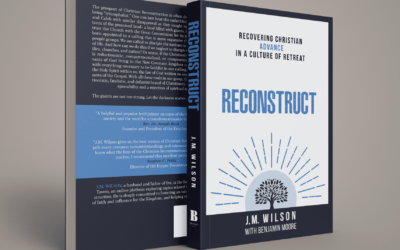When it comes to interaction with various ecclesiastical authority figures throughout your life, how many times have you heard yourself thinking questions like:
What’s up with this pastor? He’s always been a nice guy but where did that behavior come from? Man that elder is a head case – where did this arrogance come from? Why did the pastor just gossip about that person to me? That was a passive aggressive comment – is he trying to manipulate and intimidate me? Hmm, it’s pretty strange that that family left the church, I wonder what happened to them? Why did the pastor just badmouth them to me in private with a passing comment?
With the more recent division that has taken place in the church over COVID-19, these tendencies can be even more prone to amplification.
Many times it doesn’t dawn on us until it happens to us. Sadly we have to ask ourselves, is it really that rare to see an elder of a church with a pride problem that ends in weird, manipulative, and destructive behavior? What is at the root of all of this?
Let’s go back a minute. The year was 2010. The Gospel Coalition was the new hit web platform for all things reformed evangelicalism. Prominent voices on the website included megachurch pastors like Mark Driscoll, Tullian Tchividjian, Darrin Patrick, C.J. Mahaney and James MacDonald. These men are talented, charismatic and engaging leaders. They all had booming ministries and people were looking to them for guidance on how churches should be operated. Their sermons were being shared all over Christendom.
Today, to one degree or another, each one of these men have fallen and disqualified themselves from leadership for various serious character issues or scandals. None of them remain as contributors or council members at the Gospel Coalition. This is devastatingly sad not only for these men, but first and foremost for the wake of destruction upon the body of Christ.
If memory, serves me, James MacDonald is the most recent of these men to be fired from the pastorate and with this development there is a TGC video from 2010 making the rounds on social media that has been resurrected. In this video Mark Driscoll, James MacDonald and Mark Dever engage in a roundtable discussion about the validity of multi-site churches. Driscoll and MacDonald are pro while Dever is against. Regardless of the arguments made for each side, what is very clear in the video is that through the veneer of brotherly tongue-in-cheek teasing, the personalities of Driscoll and MacDonald begin to dominate the discussion with snarky comments left and right. They are quick witted, bombastic, bold and kind of rude. They come across like jerks.
No doubt it is these exact personality traits that were at least partially the cause of their “success” in the institutional church contexts in which they rose to the top of the reformed evangelical heap and exactly these same traits that led to their downfall. In contrast, Mark Dever, the pastor of a smaller church with a different philosophy of church growth and ministry displayed a personality which came across more humble, kind, and diplomatic. He demurred.
From what I can see, the crowd on social media seems to notice this personality contrast and was quick to laud Dever and his rejection of the multi-site model as being vindicated. MacDonald and Driscoll were fired from their posts and Dever remains doing his thing. See Dever was right? And while I would join in the chorus of pointing out how toxic personalities like Driscoll and MacDonald need to be watched out for I would like to shift the discussion to a different focus which I believe to be the root problem.
In the analysis of the “scorecard” of the substance of the debate, it actually came across to me that MacDonald and Driscoll were shooting down all of Dever’s objections to the multi-site model and they quite effectively turned the debate back on to Dever who in my estimation lost the “debate” from a point for point standpoint (though in his defense he was outnumbered). Sure the multi-site vs. single site debate should be had. I also think it’s true that the multi-site philosophy compounds the propensity for a pastor to start believing all the good things people tell him about himself.
But this is besides the point. What goes unnoticed is the underlying presuppositions of the whole discussion. Dever, Driscoll and MacDonald all have in common a shared view of what the Kingdom of Christ on earth is. During the discussion, McDonald even states “the mission of missions is the church, and the mission of the church is missions”. McDonald then scolds Dever for not remembering how obvious this should be to everyone, and Dever agrees.
This is a view of the church which wraps up the activities of the institutional church as being exhaustively identical to the Kingdom of Christ. It insularly wraps up the mission of the church as being totally subsumed by building the church. Is the church not supposed to serve the Kingdom of Christ? Does the authority of Christ not encapsulate all areas of life including the authority spheres of family and civil government? What are the practical implications of believing that the kingdom is no larger than the church?
When this happens, the most prominent and important “jobs” in the truncated kingdom of God (the institutional church in their view) belong to those with most authority, influence and visibility in the church. That is the elders, pastors and teachers. In a Mark Driscoll pastored church and a Mark Dever pastored Church, the pastor of the church is the one who everyone looks to as doing the most important and most spiritual work in the kingdom.
The way all these pastors were talking in this video, both sides seemed to be tacitly agreeing with the premise that if the senior pastor dies or goes away somehow and there is no pastor available to immediately step in and carry on, the covenant community dies and the manifestation of the kingdom in that local region dies. The discussion then becomes about how wide the devastation would be in either approach, multi or single-site. People begin to depend and look to Pastors as the engine of Kingdom advance and health. Everything rides on the Sunday morning sermon. If the Pastor is leading well, the kingdom is doing well. If the Kingdom is doing well, that must mean you have a great pastor.
Further, the congregation picks up on this, and now the pastor can do no wrong. Any criticism of the pastor is looked with a much higher level of scrutiny than anyone else would receive. The elders and the congregation are more prone to overlook pastoral problems and when someone brings forward an issue it is seen as “complaining” and “divisive behavior”. After all, the pastor is doing so much good and the Kingdom is on the line! His sermons are so good!
With this kind of culture, the Pastor begins to see himself as indispensable to the Kingdom. This is how a complex develops. He can’t fail. He convinces his elder team that he can’t fail. The Kingdom is on the line. He begins to justify all manor of moral compromises with the misguided notion that “it’s for the kingdom” which he sees as the same thing as “the church”. He begins to excuse behavior in himself that he calls out ruthlessly in others. Just another body under the local church bus of the kingdom. All this attention and all of this influence that is bestowed upon the pastor and the elders give them this sense of bloated centrality and importance within the kingdom of God. Groupthink ensues.
This sort of thing happens again and again, not only at the churches of these former TGC contributors but with the recent fall of the megachurch evangelical pastor Bill Hybels (It’s been a bad couple of years for Chicago). The story is usually the same. It turns out that abuses of all kinds have been going on for years and the victims have been slandered and sidelined and people say they just couldn’t believe those who raised the red flag. They never thought it could happen to their pastor.
Does every pastor fall despite this dynamic? No. Some are able to maintain a certain modicum of morality throughout it all. Do some pastors fall but are never removed or found out this side of eternity? Undoubtedly. In fact, the big-time personality, rude, bombastic characters like the Driscolls and MacDonalds are many times easier to spot than the more reserved local church pastor who nonetheless is just as manipulative and who’s destructive personality is thus harder to detect. Especially for the church community that holds this pastor on a pedestal and does not believe that they could ever be that way. Until it happens to them. This has been a matter of personal experience for me and my family.
How many churches, and how many church members or former church members continue to suffer at the hands of a pastor who has disqualified himself from ministry but continues on, enabled by the congregation and the elders? A pastor who is culpable in his own sin but who is also the victim of a system that by it’s very nature produces headcases at an alarming rate. Heavy is the head that wears the crown. It’s too much pressure and too much responsibility and it’s not designed to be worn by a pastor, it belongs to Christ.
What we need to realize first of all to turn this trend around is not to die on the hill of multi-site or single-site. Land on either side of that issue and you don’t fix the megalomaniacal pastor problem. I have seen as many nutcase leaders in small churches as I’ve seen in mega churches. We need to stop our culture of treating these pastors like the Kingdom of God depends chiefly on them. Pastors need to do away with the doctrine that conflates the kingdom of Christ and the institutional church as one and the same.
At his ascension, Jesus Christ received all authority in heaven and on earth. The nations that were promised to him in Daniel 7 were handed over to him as his legal possession. All institutions, whether the family, the church or the civil governors are a part of this great kingdom. Each has its own jurisdiction and limits. This kingdom authority that was given to Christ, which is the basis of the great commission, is total. A healthy Christian civilization requires Spiritually healthy individuals, families, businesses, courts, universities and yes, churches. There is supposed to be a harmonious relationship between all of these. None are to be relegated to “common” activities. The church resides as one centrally important aspect of the Kingdom of God, but there are “jobs” other than “pastor” or “elder” in all parts of the Kingdom which are equally as indispensable. Each has its own role to play.
Sadly, until the church learns this difficult lesson, we will continue to see this toxic trend continue at churches both large and small. The church of Jesus Christ needs to be about building Christian civilization. Our advance of the Gospel should mean the discipling of the nations towards obedience to Christ in every realm (not just within the church).
If we are busy making our local churches into entities that exhaust the scope and meaning of the kingdom, we’ll soon find our pastors end up wearing the crown.





0 Comments